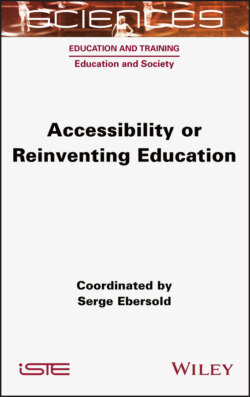Читать книгу Accessibility or Reinventing Education - Группа авторов - Страница 21
1.4. An ergonomization of practices related to the fight against institutional discrimination
ОглавлениеThis reorganization of the legitimacy of the school institution around the ergonomization of practices changes the role and missions of schools. They must be committed to prevent and act against institutional discrimination that results from the way they operate, and many countries have endeavored to make schools socially responsible in being inclusive (Ebersold and Meijer 2017).
This accountability of schools aims to ensure physical access to mainstream forms of schooling. Following the Treaty of Amsterdam, most European countries have amended their legislative framework to prohibit all forms of discrimination and to give pre-eminence to mainstream forms of schooling over specialized forms. The Inclusive Education Act enacted in Estonia in 2010 supports, as in other countries, the mainstreaming of students with disabilities by recognizing their right to be supported by a special education teacher during their schooling. The law on education promulgated by Luxembourg in 2009 recognizes the right of every pupil with a disability to education in a mainstream environment. This empowerment of schools goes hand in hand with a redefinition of the missions and orientations of the specialized sector, which is now required to support schools in their policies and strategies for environmental accessibility (European Agency for Development in Special Needs Education 2013; Florian 2005).
This empowerment of schools also aims to enable people to exercise their duty as pupils and to be seen to do so legitimately. Most countries of the European Union ask schools to do this by putting the figure of the average pupil at a distance in order to take into account the forms of vulnerability encountered on a day-to-day basis therein (NESSE 2012; Wisnia-Weill 2014). In France, for example, 6% of the circulars issued by the Ministry of Education between 1982 and 2011 on the schooling of pupils with educational needs relate the personalization of practices to such a change in outlook. Prompted by codes regulating school environments, this taking into account of vulnerabilities requires teachers, as stated in the circular of May 23, 1997, on the “mission of the teacher”, to identify what knowledge and know-how has been acquired and what has been poorly mastered, and to analyze the obstacles encountered in the course of teaching and any gaps between expected and achieved results, with a view to increasing the relevance and effectiveness of their practice. In addition, 11% of the circulars cited above correlate the personalization of practices with the ability of schools to identify pupils at risk of failure at school and to mobilize the additional technical, financial and human resources required to prevent it. Flemish-speaking Belgium has developed a specific programme (Zorgbreedte) to pay special attention to children from disadvantaged backgrounds as soon as they show signs of any learning difficulties that may complicate the transition from nursery school to primary school by monitoring, in particular, the child’s speech and social skills, preventing and correcting any learning difficulties, considering socio-affective problems and cooperating with families (Wisnia-Weill 2014).
This accountability on the part of the institutions also includes the capacity for student engagement. In contrast to the integrative ambition of the 1970s, the inclusive one makes student engagement in the processes at work a central requirement and substitutes “the participating student for the visiting student of the integrative ambition” (Barton and Armstrong 2007). Many countries have progressively correlated the accessibilization of school environments to the subjective components of students’ educational success with their engagement in educational processes. It is the responsibility of governments to focus on their involvement and assessment to encourage students’ motivation to learn and succeed (OCDE 2017a). It is incumbent on school policies to encourage members of the educational community to pay particular attention to the needs and emotions of each student and, more particularly, to those who lack academic motivation. It is up to the modes of educational organization to emphasize the cognitive functioning of pupils and their “capacity […] to mobilize their achievements, both at school and in life” (Durand 2013, p. 290).
